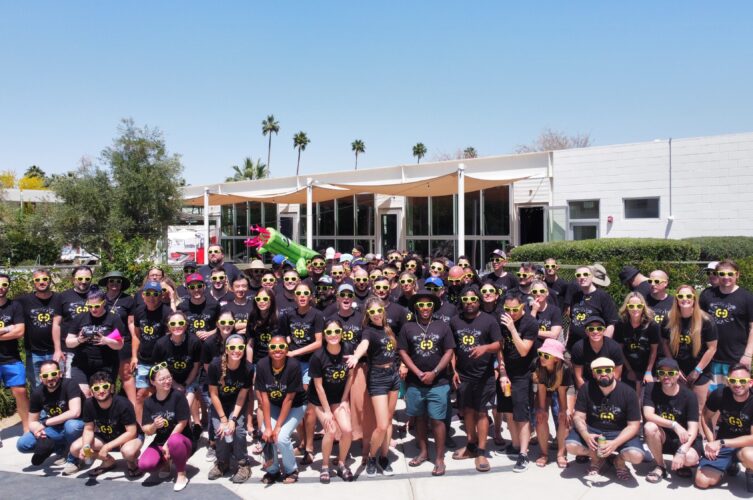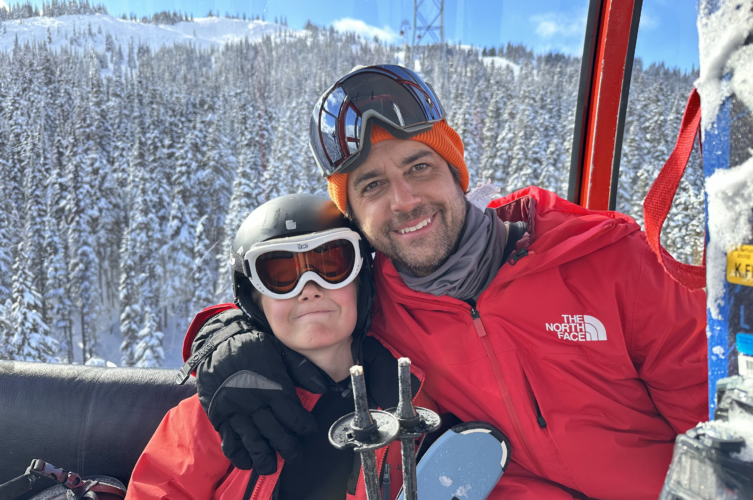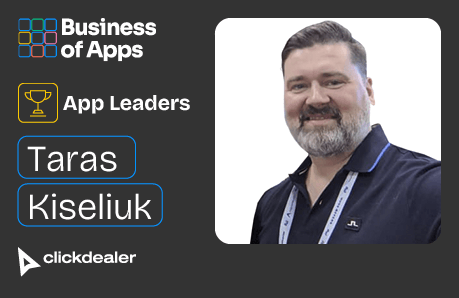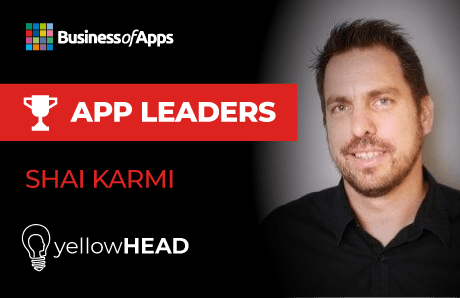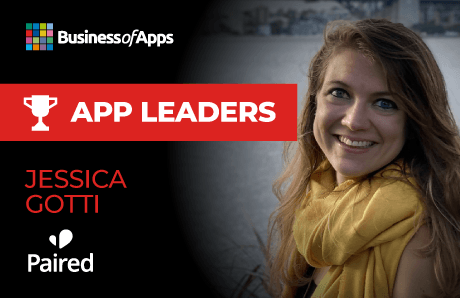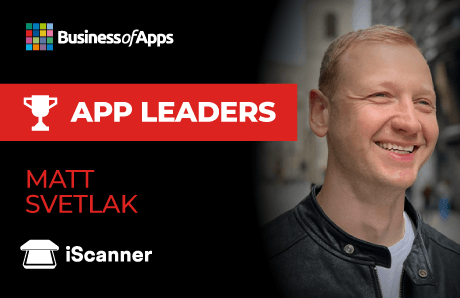Eric Futoran is CEO and Co-Founder of Embrace, the solution to help engineers manage the complexity of mobile to build better, bolder experiences. Companies like Take-Two, Miniclip, GOAT, Yahoo!, and The New York Times use Embrace to identify and prioritize user-impacting app issues with detailed technical play-by-plays to resolve them instantly.
Prior to Embrace, Eric co-founded, built and scaled Scopely, the largest US mobile games publisher and acquired in 2023 for $4.9B. He graduated with a JD/MBA from NYU, and EE and CS degrees from Duke University. Eric also enjoys leveraging his variety of skillsets as an angel investor and advisor to many prominent tech startups.
In your own words, what’s your role in the app business right now?
Mobile continues to grow exponentially, especially compared to the web. The opportunities to grow in that medium, whether phones, VR, tablets, PoS systems, and IoT-connected devices, are immense and continue to expand.
Our role at Embrace is twofold. First, we help mature app businesses, like games, better connect to their end-users by providing their teams, especially engineers, a toolset and partner to understand player experiences, how they break down, and where the most business impact exists to prioritize fixes, features, or optimizations.
Second, for those businesses strategically doubling down on mobile or becoming mobile-first, such as eCommerce and Hospitality, we provide them business data based on their underlying user experiences to hasten that evolution. We make their PMs and Engineers more effective in determining proactive KPIs and then improving them by identifying problems, prioritizing which ones to work on, and resolving them.
How did you end up working in apps? / get started?
As a co-founder of Scopely and the primary builder of their current publishing and game development business, I was on the frontlines of mobile and apps. For example, I was the first PM on Dice with Buddies which evolved into a top 100 app and then expanded into both Yahtzee and the business unit that developed MonopolyGo.
What are you most excited about in apps right now? (tech, trends, people, verticals)
Apps have become the primary, if not only, way we interact with the world. All of us underestimate how we as people are changing because we now have a computer in our pocket, in our cars, and on our wrists. Our interconnectivity will continue to grow, and the complexity of the data required to support building apps on those devices will expand exponentially. I’m excited to be on the forefront to help manage that complexity so that the speed of innovation of companies can match our endlessly heightening individual expectations for great experiences.
What other companies in the app space do you rate/ inspire you and why?
While the most common answer might be Apple for app developers, Apple does not inspire me. I don’t believe they are truly focused on building or enabling great app experiences. Instead, Apple is focused on constructing the hardware to power apps, and apps are only a way to adjacently monetize the hardware.
Instead, I choose Google. “Woah! Google? Really?” Google has recently released new functionality in Google Play, particularly in the Console, to empower all the app developers to optimize their apps for great experiences.
While app developers may not like the fact that Google is measuring their app crashes, ANRs, and other issues, and I am positive they hate that these metrics connect to rankings and app featuring, Google is creating an incentive and impetus for app developers to finally truly focus on those experiences and making them great.
What’s in your marketing tech stack? What tools / software / services do you use the most in your day-to-day work?
Every app at its heart is built upon a series of business KPIs. In soft launch, we need to hit KPIs to know the game is good enough for release. In general release, we need to improve key KPIs via LiveOps. The tools we use present reactive KPIs. What I mean is product analytics and monitoring products present KPIs that already represent the overall impact on the business KPIs, like cohort LTVs, eCPIs, shopping cart abandonment, and the like.
The opportunity is for leading KPIs that correlate to those important business KPIs. These leading KPIs are presented in near real-time and afford effective product prioritization based on end-user experiences impacted. They are not delayed by 24 hours to two weeks and do not create fires because a business KPI dropped and we are not sure why.
What do you like most about working in apps?
The complexity of apps is fun for me. Every app is on a device and every device represents a user. These apps are standalone as compiled code and most run without an internet connection. The paradigm is not the web, PC, or console. Apps on mobile explode in the data they create – both behavioral and technical, and the complexity of collecting all that data and making that data usable is a great challenge.
In addition, a collision is coming. The complexity of apps and the data exhaust created do not match the needs of the back-end DevOps teams. The data platforms, like Databrix, Grafana, and Datadog, are all making bets on how mobile fits into their platforms as their customer personas, namely DevOps, must now support apps and mobile engineering teams.
A growing platform, like mobile, plus ever-rising complexity, plus a vendor collision is great hunting grounds for entrepreneurs like me.
What one thing would you change about the app industry / market? Where do you think there’s an opportunity for apps / or unmet needs?
Transparency. While I love the approach Google is making to tie technical KPIs to player experiences, the platforms, like Google and Apple, as well as the vendors, like Datadog and New Relic, are not helping app teams. They are not making their data available, they are not collecting the correct data, and they are not building their solutions for mobile teams. Instead, they continue to be opaque; they continue to focus on the back-end; and they continue to penalize app developers via a lack of progress and transparency.
The effect is reactivity. Teams are working on the wrong optimizations, building the wrong features, and reacting to an alert disconnected from the true business impact felt by the end users. And we see it when our apps freeze, perform slowly, or crash.
As users, we should not be resigned to poor experiences. “Oh, another crash…” We should expect more from our apps, and those apps should expect more from their vendors.
If you weren’t working in apps what would you be doing?
I have come to terms that I am a serial entrepreneur. I love the process of building new businesses and have the fortune to build ones in AdTech, like Max which was acquired by AppLovin, consumer, like Scopely, and SaaS, like Embrace. So it is a big “if” for me to not work in apps, since mobile is only in the 4th or 5th inning. But if you forced my hand, I would most likely work in a position to help other entrepreneurs think through their businesses and the “build” challenges whether as a partner at YCombinator or elsewhere.
iOS or Android?
Android – I have a Pixel 7. The world is Android – even the US. In fact, I was so pissed no one had Android at Scopely that as a holiday gift I gave everyone Samsung tablets.
What app(s) have been most useful to you over the last year?
I’ll ignore Star Trek Fleet, a Scopely game that I am addicted to and for way too long! TBH, I like the apps, like AllTrails and Runtastic by Adidas (both customers of Embrace,) who may not be new but are seemingly becoming part of our collective zeitgeist.
What’s on your Spotify / Music party playlist?
I am enjoying how the Alternative style of the late 90s has made a comeback. My current favorite party playlist is Japanese Breakfast, and I let Spotify choose related artists. Good driving music and background to work music too!
Any Netflix/ TV show recommendations?
My personal favorite over the last few years is The Bear. Any show that can evoke emotion, in this case, freneticism, is unique. Plus the world of startups, especially game apps, is about connecting to each of your users through emotions.
Is there anything else we should know about you?
How about interesting travel experiences? At one point in my life, I ate Brussels sprouts — a generally despised food for some unknown reason in the States, but beloved elsewhere in the world. As an avid traveler, I went to Antarctica on a super small science-focused ship. So small that you could literally walk on the walls when the board traveled to/from Argentina.
On the way back, the seas were so rocky that for each meal we would lose one of the passengers to seasickness. On the final meal of the trip, three of us remained. I was determined to eat. Then rolled out a typically fancy meal of buttered Brussels sprouts. I ate 1…maybe 2. You don’t want to know what happened next. To this day, I love Antarctica and penguins… hate Brussels sprouts.
Do you know someone driving change and growth in the app industry? Nominate an app leader here.


